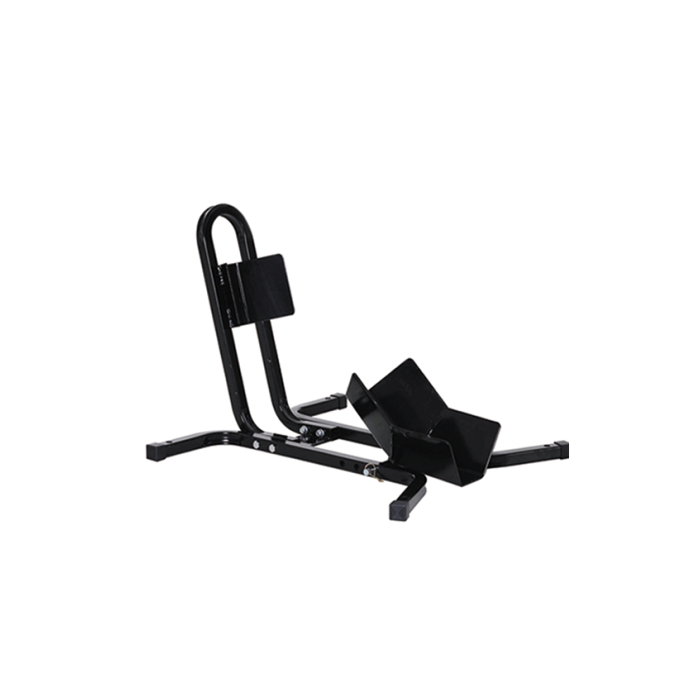The Importance of Wheel Chocks in Motorcycle Maintenance
Safety First: Preventing Accidents During Repairs
When it comes to motorcycle maintenance, safety should always be the top priority. A quality motorcycle wheel clamp plays a crucial role in preventing accidents during repairs. By securely holding the front wheel in place, it eliminates the risk of the bike toppling over unexpectedly. This is particularly important when working on tasks that require you to lean or apply pressure to the motorcycle, such as adjusting the chain or performing brake maintenance.
Enhancing Stability for Precision Work
Precision is key in motorcycle maintenance, and a stable working platform is essential for achieving it. A well-designed wheel chock provides the stability needed for intricate tasks like carburetor adjustments or electrical work. By keeping the bike upright and stationary, it allows you to focus on the task at hand without worrying about balance issues. This stability is especially valuable when working on custom modifications or detailed repairs that require steady hands and undivided attention.
Versatility in Maintenance Applications
The versatility of a motorcycle wheel chock extends beyond basic repairs. It's an indispensable tool for a wide range of maintenance activities. From routine oil changes to more complex engine work, a reliable wheel chock adapts to various maintenance scenarios. Its ability to accommodate different wheel sizes and bike types makes it a universal tool in any motorcycle enthusiast's garage. Whether you're working on a sporty street bike or a hefty cruiser, a quality wheel chock ensures your motorcycle remains secure throughout the maintenance process.
Choosing the Right Wheel Chock for Your Needs
Material Matters: Durability and Longevity
When selecting a motorcycle wheel clamp, the material is a crucial factor to consider. High-quality wheel chocks are typically made from durable materials like steel or heavy-duty aluminum. These materials offer the strength needed to support the weight of your motorcycle and withstand frequent use. Steel chocks are known for their robustness and are ideal for heavier bikes, while aluminum options provide a good balance of strength and lightweight portability. Consider the environment where you'll be using the chock – if you're working outdoors or in humid conditions, opt for a chock with corrosion-resistant coating to ensure longevity.
Design Features for Enhanced Functionality
The design of a wheel chock can significantly impact its effectiveness and ease of use. Look for features that enhance functionality, such as adjustable wheel cradles that can accommodate different tire sizes. Some models come with pivoting or rocking mechanisms that make it easier to roll the bike in and out of the chock. Ergonomic handles or grips can improve maneuverability, especially if you need to reposition the chock frequently. Additionally, consider chocks with built-in tie-down points, which provide added security and versatility for various maintenance tasks.
Portability vs. Permanent Installation
Your choice of wheel chock should also be influenced by your specific maintenance setup. If you have a dedicated workshop space, a permanently installed chock might be ideal. These models often offer superior stability and can be bolted to the floor for maximum security. On the other hand, if you need flexibility in your workspace or frequently work on bikes in different locations, a portable wheel chock is more suitable. Look for models that are lightweight yet sturdy, with features like foldable designs or carrying handles for easy transport and storage.
Advanced Techniques for Using Wheel Chocks
Combining Wheel Chocks with Other Stabilizing Tools
While a motorcycle wheel chock is an excellent stabilizing tool on its own, combining it with other equipment can provide even greater security during complex maintenance tasks. Consider using axle stands in conjunction with your wheel chock to support the rear of the bike. This setup allows you to lift the rear wheel off the ground for tasks like tire changes or suspension work while maintaining front-end stability. For motorcycles with center stands, a wheel chock can be used to secure the front wheel while the bike is balanced on its stand, offering a stable platform for engine or transmission work.
Customizing Chock Setups for Specific Maintenance Tasks
Different maintenance tasks may require unique setups. For instance, when working on the front forks or headset, you might need to elevate the front wheel. In such cases, use a combination of your wheel chock and a hydraulic lift or jack stands to achieve the desired working position. For tasks that require accessing both wheels simultaneously, consider using a dual wheel chock system or a front chock paired with a rear wheel stand. This configuration provides 360-degree access to your motorcycle, ideal for comprehensive maintenance or detailing work.
Maintenance and Care of Your Wheel Chock
To ensure your motorcycle wheel clamp remains effective and durable, regular maintenance is essential. Inspect your chock periodically for signs of wear or damage, particularly in areas that come into direct contact with the tire. Keep the chock clean and free from debris, especially if you use it in outdoor environments. For models with moving parts, such as adjustable or pivoting mechanisms, apply lubricant as recommended by the manufacturer to maintain smooth operation. Proper care not only extends the life of your wheel chock but also ensures it continues to provide reliable support for your motorcycle maintenance needs.
Conclusion
Mastering the use of a motorcycle wheel chock is crucial for safe and effective maintenance and repairs. By understanding its importance, choosing the right model, and employing advanced techniques, you can significantly enhance your motorcycle maintenance experience. Remember, a well-utilized wheel chock not only ensures safety but also improves the quality and efficiency of your work. Whether you're a seasoned mechanic or a DIY enthusiast, incorporating a quality wheel chock into your maintenance routine is a smart investment in both your bike's care and your personal safety.
Contact Us
For more information about our range of high-quality motorcycle wheel chocks and other maintenance tools, please contact us at info@runva.com.cn. Let us help you elevate your motorcycle maintenance game with our professional-grade equipment.

_1737625693698.webp)


